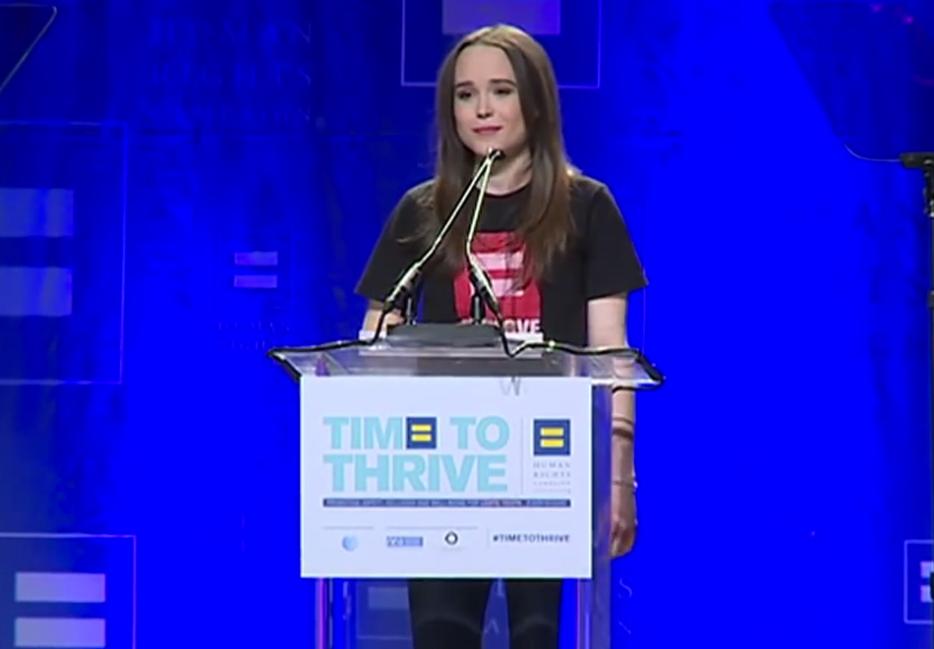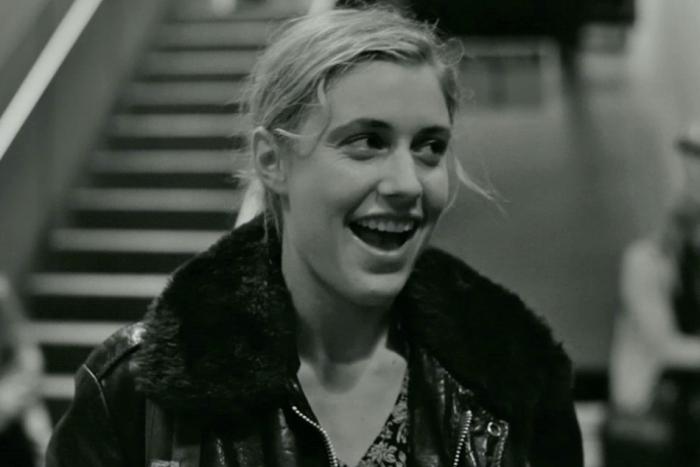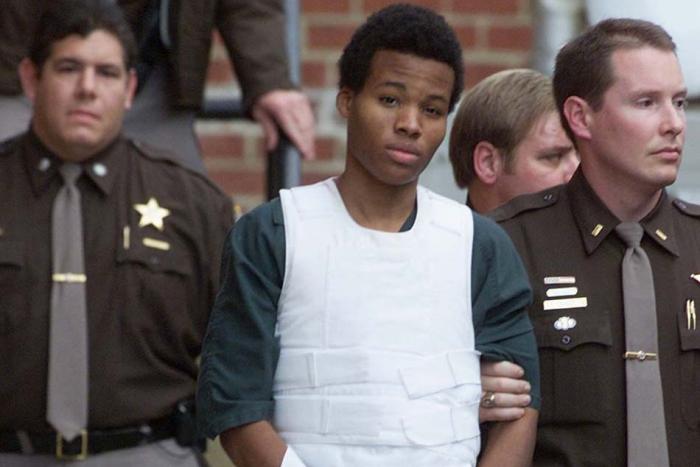If the arc of this moral universe bends towards justice, as Martin Luther King, Jr. said, it doesn’t do so quickly. The curve of the Earth is so gradual we spend the majority of our lives not noticing we live on a sphere. The difficulty, from wherever we stand, is trying to see over the horizon—backwards and forwards.
Looking backwards, it can be hard to understand what the struggle for gay and lesbian rights has already come through. The battle to simply not be subjected to violent police harassment, the battle for loved ones to be able to comfort each other as they succumb to terrible diseases, the battle to call those loved ones “husband” or “wife” and have it mean the same thing it does for everyone else.
Or maybe just the battle to live honestly. In Ellen Page’s speech to the Human Rights Campaign where she came out last week, one of the reasons she listed for coming out was the simple exhaustion of having to live lying by omission.
The closet can hold more than just gays, though. Ask a person of colour whose skin was just pale enough if they ever lied by omission. Or any number of minorities throughout the ages whose appearance didn’t give them away. Anyone who’s ever forced a laugh at a punchline their coworkers unwittingly made at their expense. It’s an everyday kind of freedom, the right to be honest about who we are, but it’s a privilege not everyone has access to.
Looking forwards, we can see plenty of struggles have yet to be won—and some battles have yet to be fully joined by people who ought to know better. The Winter Olympics are being held as Russia restricts the rights of its gays and lesbians, who are now concerned with keeping the West’s attention after the Games end. The quote-unquote good news from Russia is that, hey at least it’s not Uganda. And on those other battles, transgender people—when they aren’t facing an oblivious media—still face the kinds of petty hurdles an uncaring world throws up as easily as we breathe.
The battles for equality all stand on their own merits, and while they weren’t and shouldn’t have been fought on my behalf, I’m enormously grateful for them. And why wouldn’t I be? Every time we widen the circle of equality, we increase rights for everyone. It’s comforting to know that as we work the homophobia out of our society, that, had I been born a gay man, I would have a more secure and happy life than if I’d been born in the 1950s.
But we don’t need to invoke Rawls’ Veil of Ignorance: I’m also grateful that, by insisting on the right to live their lives openly and in security, gay men have broadened the horizons of what masculinity means for men like me beyond the narrow confines of what was acceptable even in the year I was born.
It’s also deeply satisfying to know that I didn’t have to grow up being a homophobe, just as I didn’t have to grow up being the racist or misogynist earlier ages would have tried to make me. If for no other reason than the woman I fell in love with and married both a) is Chinese Canadian and b) wouldn’t put up with that shit.
I don’t think, in the end, these kinds of battles are won by appealing to the self-interest of the privileged. They’re won in innumerable other ways, from massive marches to small acts of honesty between friends. But those of us who’ve been lucky enough to reap the collateral benefits of the long arc bending towards justice have an obligation to use that privilege of honesty to talk openly and often about what we owe and to whom it’s owed.
We have an obligation, too, to keep pushing things forward, because who knows what new opportunities are over the horizon?






